This October 6, two days before the “World Hospice and Palliative Care Day,” Yun Young-ho, a professor from the Department of Family Medicine at Seoul National University, and a team of lawyers submitted a policy proposal to the National Human Rights Commission of Korea. Professor Yun’s team requested an amendment to the Act of Decision on Life-Sustaining Treatment (LST), claiming that the option to withdraw or withhold their medical treatments should be given to patients. To specify, their policy proposal argues that the act should include “Physician-Assisted Suicide (PAS)” to ensure patients’ self-determination. Professor Yun’s team asserts that patients in critical condition should have a right to end their lives through PAS, which is suicide carried out with a physician’s aid. A heated debate about PAS was initiated after this policy proposal.
What is "Dying Well"?
While a survey conducted by Hanyang Journal (HJ) shows that 63.7 percent of Hanyang University (HYU) students have heard of the term “Dying Well,” the majority are still unfamiliar with its exact concept. According to professor Choi Young-sook, the president of Korea Dying Well Organization which is a private organization promoting the trend of Dying Well, understanding the definition of Dying Well is essential to achieve the intent of Living Well. In other words, it emphasizes not only concentrating on how to live well, but also knowing how to die well. In a broad sense, Dying Well refers to patients’ actions of looking back at their past days and preparing for their peaceful passing. In a narrow sense, the definition of Dying Well is suspending ineffective life-sustaining treatment or receiving hospice care. The new global trend of acknowledging Dying Well’s necessity has been established through several organizations’ efforts. To elaborate, the Global Wellness Institute, a nonprofit organization in the United States, considers death as an extension of living and consistently explores the true standards of Dying Well. In addition, the Korea Dying Well Organization provides educational lessons about “death” to the public. According to professor Choi, changing the social perception of death is important. She added, “Compared to other cultures, confucianism puts more emphasis on the values of one’s life. Since Korean society is based on a conservative confucian culture, issues related to death are considered taboo. Therefore, not much discussion on death is ongoing among Koreans. It is urged to change this social perception and acknowledge that death is a natural phenomenon.”
Defining the Act on Decisions on LST and PAS
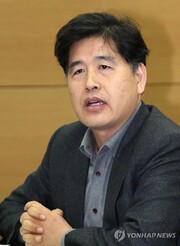
The Act on Decisions on LST and PAS are laws in which medical care is heavily intertwined with the death of patients. In parallel with rising concerns and demands of dying well, both laws and their purposes are gaining significant attention. First, the Act on Decisions on LST is a legislative approach to respect terminal patients’ self-determination rights. It intervenes in medical practice and halts treatments that have no curative effects, but merely extend unnecessary agony. On the other hand, PAS is a procedure in which a physician assists a patient’s death by prescribing or supplying suitable measures. In other words, it is the suicide of a patient carried out with a physician’s help. While the Act on Decisions on LST aims for the natural process of the deathbed, the method of PAS is often considered retrogressing from natural death, especially in Korean society.
The Reality of Death in South Korea
In 2020, eight out of ten deaths in South Korea came to an end in medical institutions. The deceased’s last places before demise were usually wards, emergency rooms or intensive care units. In these very places, some patients prolonged their lives by relying on medical appliances due to unwanted LST. Since our society heavily depends on “medical treatments” and “surviving,” it has become difficult for patients to die of their own will in dignity and peace. According to professor Yun, only 18 percent of those among 300,000 quietus cases pondered prolonging their LST. In other words, most patients did not even get a chance to choose whether or not they would face death naturally without LST.
Limitations of the Act of Decision on LST
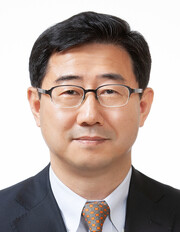
In Korea, the Act of Decision on LST was introduced to the National Assembly in 2016 and has been implemented since 2018. However, some issues have been continuously raised. First, according to professor Yun, procedures of making self-determined decisions regarding withdrawal or withholding of LST are too complicated. Therefore, only 27 percent of patients were able to write advanced directives and express their wish to withdraw or withhold medical treatments. Secondly, family members of the patient often interfere with the patient’s right to self-determination. According to the Korea National Institute for Bioethics Policy, approximately 60 percent of LST prolongment decisions were made by the patients’ family members and not by the patients themselves. Third, there is a low occupancy rate of hospice care. Hospice care refers to a type of health care that focuses on the comfort and life quality of terminally ill patients. The Ministry of Health and Welfare defines the following as the five types of diseases that are diagnosed as terminal illnesses and recipients of hospice health care: incurable cancer, chronic obstructive pulmonary disease, chronic liver cirrhosis, Acquired Immune Deficiency Syndrome (AIDS), and chronic respiratory failure. Professor Yun pointed out that only 21 percent of hospice recipients – mostly patients with incurable cancer – benefited from its services. However, even among patients with cancer, those that received hospice care took up only 23 percent, which is as little as six percent in the category of total deaths. According to Lee Hae-na from the Department of Sociology at Sungkyunkwan University, South Korea has a relatively low rate of patients taking hospice care compared to other countries. Professor Lee added, “We should acknowledge that hospice care is essential for patients to attain physical and psychological stability. They need spaces like hospice facilities that enable them to look back retrospectively.” Hence, people should bear in mind that the Act of Decision on LST has some limitations, and needs systematic complements.
LST and PAS Application in Other Countries
The issues related to LST, and PAS cannot be weighed up solely by medical judgements. According to Heo Dae-seog, the director general of the Patient-Centered Clinical Research Coordinating Center (PACEN), we must also consider multiple factors such as sociocultural values and ethical aspects. For example, many countries developed different legal LST and PAS standards according to the societal corporatism of their citizens. Most countries implemented the process of giving patients the self-determination right to withhold or withdraw from LST. To be specific, Taiwan started to allow patients to decide on LST prolongment in 2000, and Japan in 2007. Contrary to LST, PAS is still controversial. Nonetheless, an increasing number of countries are starting to legalize PAS. These countries are as listed but not limited to: Netherlands, Belgium, Luxembourg, Switzerland, Canada, New Zealand, Austria, Spain, several states in the U.S., and a few states in Australia. Even so, director general Heo emphasized that people should not disregard the fact that these countries have established strict standards and regulations in allowing PAS. Thus, the issue of enacting PAS in Korea should be debated based on the institutional and social context of Korean society.
Viewpoints on Introducing PAS
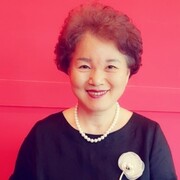
Viewpoints on Introducing PAS Discussions on LST have risen more than ever before, yet public debates on this legislation intensified due to the remaining limitations lying behind the act. Seo Yi-jong, a professor from the Department of Sociology at Seoul National University emphasized that, “An Act on Decisions on LST for patients with a terminal illness is not controversial in the medical field. Since the purpose of legislation of the Act on Decisions on LST is aimed at protecting and ensuring the human dignity of the patient as well as the value of human beings, its necessity is unquestionable. However, the majority of terminal patients are not subjected to the implementation of the LST act. Hence, several limitations are apparent in the enacting process.” Regarding the Act, the National Agency of Management of LST Hospital Statistics conducted research from February 4, 2018 to January 31, 2019. According to the analysis, 59 percent out of 33,549 patients who prepared a LST withdrawal or withholding decision statement were cancer patients. Moreover, in a study analyzed by the National Health Insurance, only 25 percent of 50,838 cancer patients, who died within the identical period, complied with the process specified in the law. Amid the controversies, professor Yun and a legislative member of the Democratic Party of Korea suggested the aforementioned proposal of the Act on Decisions on LST amendment by adding PAS, this October. However, critics have been expressing concerns over the bill despite its virtuous purpose, claiming that legalizing PAS will eventually elicit a culture of contagious suicide. Director general Heo asserted that, “Strengthening the end-of-life support system should be the priority at the current time. Skipping the stages of establishing concrete disciplines of the Act on Decisions on LST and focusing only on adding PAS is not appropriate. Instead of radically legalizing PAS in Korea, a phased approach of introducing the policy based upon enough systematic preparation and social consensus is required.”
Tasks to be Preceded: Terminology
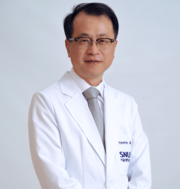
One of the tasks that should be put first before the legislation of PAS is resolving the confusion over its terminology. It is unlikely that one would oppose the fundamental purpose of the policies that pertain to assisting dying “well.” However, in matters of life and death, choosing the appropriate terminology matters heavily: which terminology should be used to define and specify Dying Well to what extent? According to director general Heo, our society is currently loaded with expressions translated into divergent Korean words regarding death-assisting practices. For instance, terms such as euthanasia, death with dignity, natural death, and withdrawal of ineffective LST were coined based on an emotional value oriented perspective. Since the wording process depends on each country’s various and subjective socio-cultural context on death, further misunderstanding can be incurred when justifying which death should be considered as a dignified one. In contrast, words like “withhold or withdrawal of life-sustaining treatment” or “physician-assisted suicide” are rather action-oriented and value-neutral, since the expression solely emphasizes the medical treatments themselves. Though the confusion when defining dying is understandable, director general Heo suggests that consensual efforts to settle objective and technical terms like “physician-assisted suicide” must be preceded to clarify and minimize the chaos in understanding end-of-life choices.
Integration into the Terminal Stage
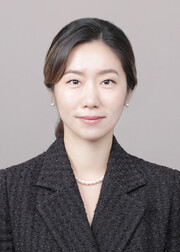
Additionally, director general Heo discussed the need for amendments to supplement the systematic limitation of the Act on Decisions of LST. According to the Act, published in November 2016, the target of the initiatives is stipulated as “patients who have been diagnosed as terminal patients or patients at the end stage of life.” The National Agency for Management of Life-Sustaining Treatment defines a terminal patient as a patient who is “expected to die within a few months due to the bare possibility of a fundamental recovery.” On the other hand, end stage of life or the dying process is considered “the state of imminent death, in which there is no possibility of revitalization or recovery despite treatment.” Originally, the act stated that two individual doctors would determine when the patient’s “dying process” had begun. However, it is difficult to identify which phase the patient is in, since there is no strict definition or criteria for distinguishing the “dying process” from the “terminal stage.” Such ambiguity not only makes it more difficult for the doctor to distinguish terminal patients from patients in the end stage of life but also impedes them from adhering to withholding measures based on the required guidelines. Therefore, rather than strictly classifying the illness stage into two different types which exacerbates confusion, unifying the terms into one should be proceeded. To avoid this confusion, many foreign countries, such as Japan, England, Germany, Australia, the U.S., and Canada, do not distinguish the dying process from the terminal stage.
LST Decision Application and its Implication in Medical Fields
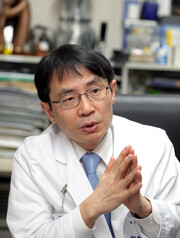
Most significantly, the LST withdrawal and withholding application and its implication procedures should be improved. One of the possible improvements is integrating the LST withdrawal application into a single and simple format. When patients with the barest possibility of recovery enter the end stage of life, doctors in charge may determine whether to prolong LST or not. Various forms must also be completed in this process. Firstly, whether a patient is in the dying process must be assessed according to the ninth initiative of the LST Act. Secondly, the documents on “an Advance Directive on LST” that confirm the patient’s decisions on LST must be completed. If patients are not eligible to consent themselves, the family members’ decisions can be reflected instead. Finally, the procedure requires a form that executes the decision of the patient. However, amid the turmoil of an urgent situation in which time is precious, doctors and patients struggle to abide by all the established guidelines in time. Furthermore, since LST withdrawal decisions are made just before one’s death, it is unlikely for the appropriate preliminary procedures of withholding LST hospice and palliative care to be well achieved. Therefore, the complicated and intricate administrative process of the form must be simplified with sufficient notification from the physician.
Additionally, Park Hyoung-wook, a professor of the College of Medicine at Dankook University, addressed hospice and palliative care issues, asserting that “Diverging from the original intent of the law, overflowing hospitals lack the flexibility to offer dying patients enough infrastructure and inpatient hospice facility in the right place.” Continuous and sufficient revision of the law should become a priority in order to enlarge the scope of patients and medical institutions permitted for legal LST forms. Above all, the effort to change society, from excessive reliance on ineffective medical treatment to humanitarian medical care, is needed. Director general Heo and professor Park insisted that detaching from extreme medicalization, acknowledging the limitations of medical treatment and establishing additional social involvement including discussions on legislative action, public awareness, and strengthening the infrastructure and welfare system must be entailed. Perhaps, the initial step in discussing death would be to understand that medicine cannot cure everything.
The Conclusion: How to Die Well
Though there is a consensus that the validity of enforcing the Act on Decisions on LST is acknowledgeable, the adoption of PAS seems to require more phased consideration because the issue of PAS involves more than a technical and medical problem. The implementation of the law considerably influences the life of people who live based upon its framework and boundary. Death might not be a realm that can be standardized or uniformly understood. Yet, social discussions on death must be publicized with advanced public awareness. Interviewees of the HJ identically pointed out that issues regarding death and dying should be raised, discussed continuously, and eventually be confronted in Korea since death is a natural and inevitable part of human life. Every human life is worthwhile and immeasurably valuable. Since an overarching idea of death pertains to every individual’s well-being as well as dying well, guaranteeing a “content and dignified death” of the patient is demanded. Hence, this is the essential reason why society should continue to be concerned about not only “where” but also “how” people are cared for and achieve Dying Well.

